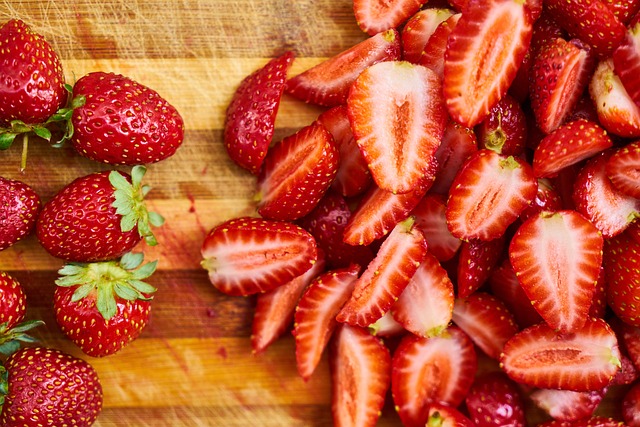Discovering the Wonders of Probiotics: A Comprehensive Guide!
Probiotics are live microorganisms that offer a range of health benefits when consumed in adequate amounts. They are commonly known as “good bacteria” as they help to maintain the natural balance of microorganisms in the gut.
What are Probiotics and How Do They Work?
Probiotics are available as supplements or can be found in certain foods, such as yogurt, kefir, sauerkraut, kimchi, and miso. They work by colonizing the gut with beneficial bacteria that can improve digestion, enhance immune function, and even have a positive impact on mental health.
The gut is home to trillions of microorganisms that form the gut microbiota. These microorganisms play a crucial role in digestion, metabolism, immune function, and even brain function. When there’s an imbalance of microorganisms in the gut, it can lead to various health problems such as digestive issues, allergies, and mental health disorders.
The beneficial bacteria in probiotics help to restore the balance of microorganisms in the gut, which can have a positive impact on overall health. They do this by producing various compounds such as enzymes, antimicrobial substances, and short-chain fatty acids that help to improve gut health and reduce inflammation.
The Health Benefits of Probiotics
The health benefits of probiotics are numerous and varied. Here are some of the most notable benefits:
- Improved Digestion: Probiotics can help to improve digestion by breaking down food and aiding in nutrient absorption. They can also alleviate symptoms of digestive disorders such as bloating, constipation, and diarrhea.
- Better Immune Function: Probiotics can boost the immune system by producing immune cells that help to fight off infections and diseases.
- Reduced Inflammation: Probiotics can help to reduce inflammation in the gut and throughout the body. This can help to alleviate symptoms of inflammatory conditions such as irritable bowel syndrome, arthritis, and eczema.
- Mental Health Benefits: Probiotics can have a positive impact on mental health by influencing the gut-brain axis. This can lead to a reduction in symptoms of depression and anxiety.
Choosing the Right Probiotic Supplement
When choosing a probiotic supplement, there are a few important things to consider:
- Strain: Different strains of probiotics have different health benefits. Look for a supplement that contains strains that have been proven to be effective for your specific health concern.
- Culture Count: The culture count refers to the number of live bacteria in the supplement. Look for a supplement with a high culture count to ensure that you’re getting an adequate amount of beneficial bacteria.
- Form: Probiotic supplements come in various forms such as capsules, powders, and gummies. Choose a form that’s convenient and easy for you to consume.
Adding Probiotic-Rich Foods to Your Diet
In addition to taking a probiotic supplement, you can also add probiotic-rich foods to your diet. Here are some of the best probiotic-rich foods:
- Yogurt: Yogurt is a classic probiotic food that’s high in beneficial bacteria. Look for yogurt that contains live and active cultures.
- Kefir: Kefir is a fermented milk drink that’s rich in probiotics. It’s also a good source of calcium and protein.
- Sauerkraut: Sauerkraut is a fermented cabbage dish that’s popular in many cultures. It’s high in probiotics and also rich in fiber and vitamins.
- Kimchi: Kimchi is a traditional Korean dish that’s made of fermented vegetables. It’s known for its spicy and tangy flavor and is a good source of probiotics, vitamins, and minerals.
- Miso: Miso is a Japanese seasoning that’s made from fermented soybeans. It’s rich in







